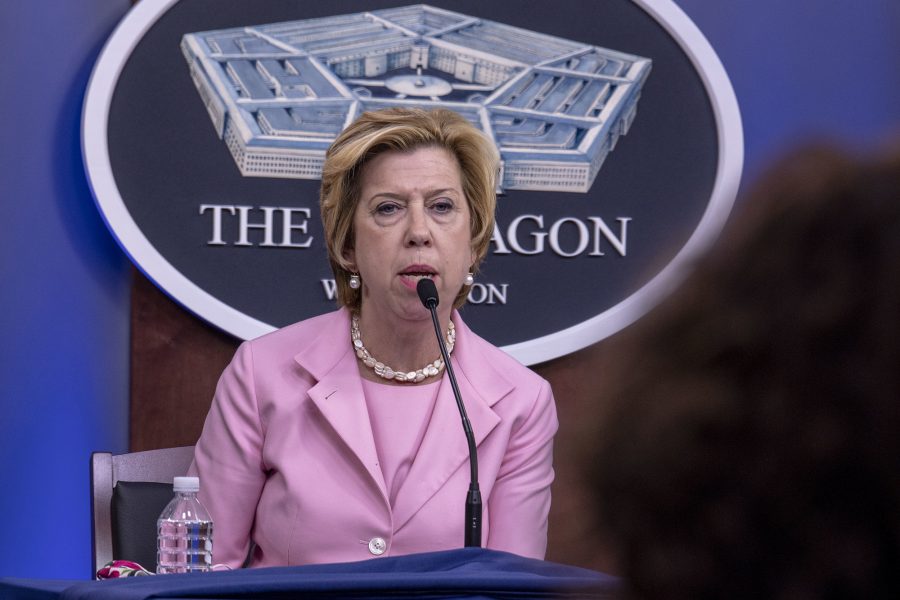The coronavirus pandemic has highlighted fragility within the defense industrial base and an overreliance on Chinese manufacturers that present a security risk, prompting U.S. policymakers to look at potential changes.
Without COVID-19, the Pentagon wouldn’t be as aware of problems in its supply chain or of China’s outsized impact, Ellen M. Lord, undersecretary of defense for acquisition and sustainment, said during a July 8 Brookings Institution event.
“Now we have interest in actually making sure that we understand the fragilities in our supply chain, and that we make sure we reshore as much as possible, and also have partners and allies supporting us wherever possible,” Lord said.
For example, the U.S. relies heavily on China for rare earth mineral processing and microelectronics. American officials worry U.S. intellectual property is unacceptably vulnerable to theft when Chinese manufacturers fabricate and package those parts.
The Pentagon wants the U.S. to control as much of the manufacturing process as possible, but that doesn’t mean everything will be done within America’s borders. Companies within the U.S. have suffered setbacks amid the pandemic as well.
“As always, in acquisition, competition is our friend,” Lord said. She argues at least two sources for each component, one American and another in an allied country, are necessary.
Companies in Mexico and Canada have proven useful because it is easier to ship materials across land than by air or sea in a situation like a pandemic, Lord said. The U.S. also depends on many European Union member countries for critical technologies, like Italy-based Leonardo for ground vehicles and Fincantieri for the Navy’s next-generation frigate.
Lord reiterated the Pentagon is keeping an eye on potentially adversarial Chinese investors who may swoop in to buy shares in and influence American companies.
